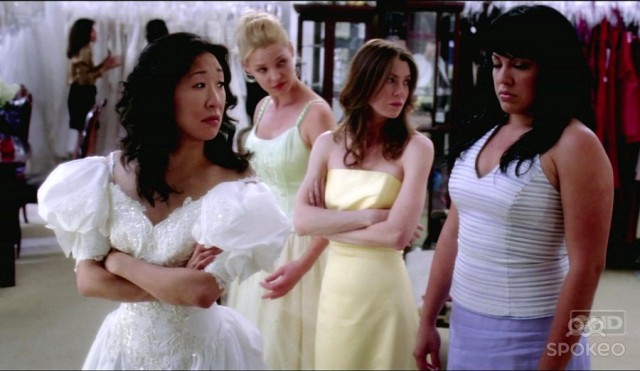Lies, Damned Lies, And Wedding Cost Statistics
by Elise Nussbaum

Quick, tell me: how much does the average wedding in the United States cost? $25,000? $30,000? Somewhere in between? As a culture, we seem to have internalized, even normalized, the idea that the cost of weddings — or, at least, the “average wedding” — edges up every year, crossing the 30-grand threshold in 2014 at an unprecedented $31,213.
This figure, taken at face value, seems to shine a light on certain aspects of our culture that some find objectionable: conspicuous consumption, unaffordable lifestyle choices, marriage as a “capstone” rather than a “cornerstone” (and that idea’s impact on out-of-wedlock births) and, of course, Bridezillas. Always Bridezillas.
When the talk turns to average wedding costs, however, there are just two questions that desperately need to be answered, or at least considered: 1) What exactly are we talking about? 2) Who cares?
Let’s note that $31, 213 is an average, i.e., the mean. There is a raft of other statistics that would be more informative. What is the mode, or the most common price tag hung on weddings? What is the range of wedding costs? Actually, I know this one: Zero to approximately eleventy brillion dollars.
The mean is notoriously, ha, meaningless when it comes to stuff like this. As The New Yorker helpfully notes in its terrifying recent article on the earthquake that is definitely going to take out the entire Pacific Northwest, “Ten is the average of nine and eleven, but it is also the average of two and eighteen.” To put it in financial terms, if Warren Buffett were the only person making money in the whole of Omaha, the city’s average income would be $140,000 a year.
The Knot might also publish the median wedding cost: the price point at which half our nation’s weddings are cheaper and half are more expensive. Will Oremus, writing for Slate.com, got some recent numbers from the horse’s mouth:
In 2012, when the average wedding cost was $27,427, the median was $18,086. In 2011, when the average was $27,021, the median was $16,886.
Oremus also points out that the self-selecting nature of the survey — not only brides and grooms with Internet access, but those who are on TheKnot.com, not exactly the first stop for low-key, backyard affairs and, I would add, those who are so attuned to wedding planning minutia that they have at hand the exact dollar amount spent on each element — must make one wonder about the representativeness of the dollar amounts listed. These are self-selection issues that dwarf the infamous “Dewey Defeats Truman” telephone poll.
Any outliers in this survey are much more likely to be at the high end of the spectrum; your friend who got married in her parents’ backyard is, most likely, not dragging the mean down by listing her borrowed dress and iTunes party playlist at $0.
There’s the basic innumeracy behind the blind acceptance and repetition of the statistic itself. Then there’s the way it seems designed to make us feel. Throwing out that one number as gospel, when over two million weddings take place in the United States yearly, distorts and flattens the experience of well over half of actual wedding participants. It may be fuel for smugness on the part of more frugal newlyweds, an arms race attitude (maybe that is why the number has been rising?), generalized hand-wringing, or a sense of inadequacy or injustice on the part of those whose yearly income is outstripped by this phantom number.
“Average” also carries with it an unfortunate whiff of mediocrity. People use many adjectives to describe their ideal weddings, but “average” generally doesn’t figure into that list. The word’s connotations also work in a way that redounds to the benefit of wedding vendors in the aftermath of publicized numbers like this: if the average wedding dress costs $1,357, then spending $1,000 seems like quite the bargain. This is a phenomenon known as anchoring, in which the mere existence of one or two more expensive options nudges us towards the higher end.
Here’s the real question: who cares about the average wedding cost?
Many people start their wedding budget by figuring out just how much wedding they can afford: the two of them, with or without factoring in help from other sources. This number does not affect how much wedding anyone else can afford; weddings themselves are not a finite resource, although line items like venues may be. Numbers like “the average wedding cost,” publicized every year, invite us to compare ourselves and our celebrations to others. Whether you spend $100,000, $10,000, $1,000 or $100 really shouldn’t matter to anyone but the people who are footing the bill. If you and your intended can create a wedding that aligns with your desires, your values and your financial situation, that is all that matters.
This is part of our Wedding Season series, which is wrapping up stories.
Elise Nussbaum lives in Jersey City with a husband, a cat and a toddler.
Support The Billfold
The Billfold continues to exist thanks to support from our readers. Help us continue to do our work by making a monthly pledge on Patreon or a one-time-only contribution through PayPal.
Comments